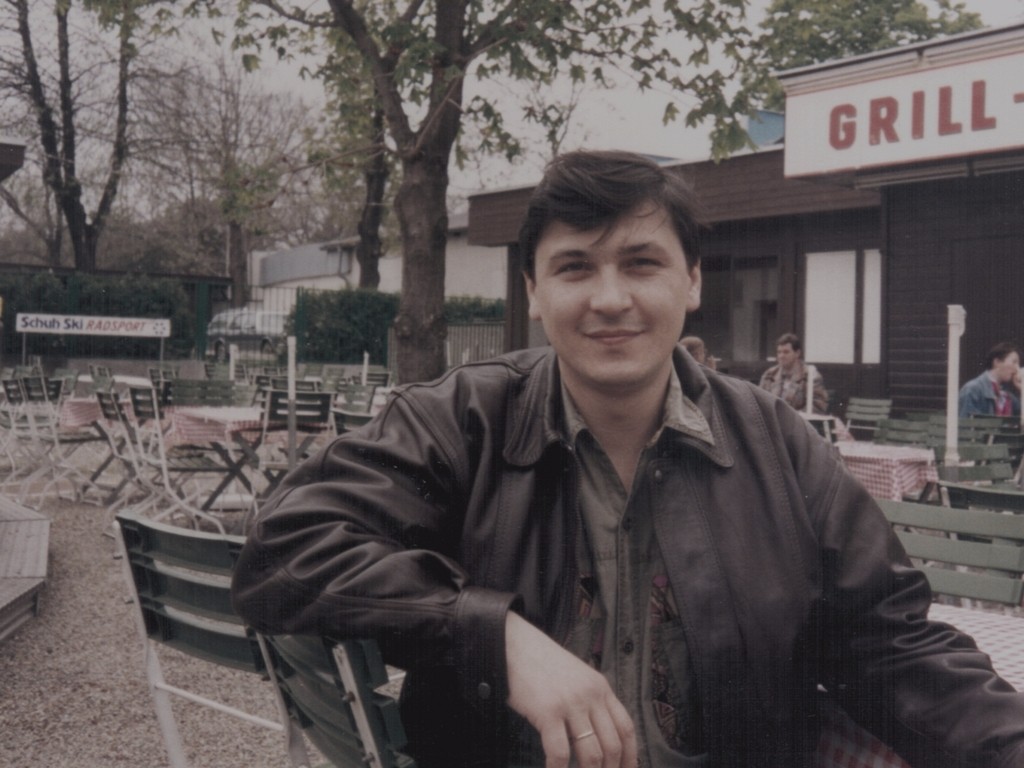The Disappeared Poet: Batyr Berdyev’s Verses Written Behind Bars
The Campaign “Prove They Are Alive!” published a book of poems written by the former Minister of Foreign Affairs of Turkmenistan and former Representative of Turkmenistan to the OSCE, Batyr Berdyev, during his imprisonment. The book with the poems in the Russian original and English translation, produced by the Campaign, was distributed at a side event held today at the OSCE Human Dimension Implementation Meeting in Warsaw and published on the Campaign website (PDF English and Russian, Epub English, Epub Russian, Mobi English, Mobi Russian).
Batyr Berdyev was arrested on December 7, 2002, and charged with involvement in the coup attempt against then-President Niyazov, which took place on November 25, 2002. A video of his “confession” was broadcast on television on December 18, 2002, and he was convicted on January 21, 2003 by the Ashgabat city court and sentenced to 25 years imprisonment. Testimony was given that Berdyev was beaten and tortured by the authorities during the investigation. His relatives have had no information about his fate or whereabouts since after his trial. “From the point of view of the authorities, these people are criminals. However, where else can we see, at the beginning of the 21st century, that people are incarcerated forever, in complete isolation, without contact with their families, their lawyers, or access to medical care“, said Arkady Dubnov, journalist and political analyst, expert on Central Asia and on Turkmenistan.
Judging by the dates on some of the manuscripts, the poems were written between December 2002 and March 2003. The manuscripts were smuggled out of prison and passed on to an acquaintance abroad. In one of the recovered manuscripts Berdiyev wrote “I don’t think my poetry has any kind of artistic value. I write whichever way I can, often sloppily and naively, but these are my feelings”. And yet his poems have a literary value: James Womack, a poet, literary translator and publisher who finalised the English translation of the poems, connects Berdyev’s work to the long Russian-language tradition of poetry in dialogue with the state, a tradition which encompasses not only political prisoners and victims of the Russian and Soviet state at various moments in its history, but which also includes such fundamental poets as Pushkin or Lermontov, who became powerful voices in support of the essential inviolability of the human soul. Berdyev’s poems are “a deliberate refusal to be silenced. They are addressed to his family, his wife and son, but what they are is a more general statement of the invulnerability of human nature” said Womack.
Those who knew Batyr Berdyev as a Turkmen diplomat remember an elegant, outgoing and cultured diplomat whose behaviour and attitude was engaging, pleasant and genuine. “Batyr was an effective Ambassador for Turkmenistan. I believe that is because, above all, he loved his country and wanted the then newly-independent Turkmenistan and its citizens to prosper. He was never about his own status as an Ambassador, but rather focused on what was good for his country” said Janice Helwig, a US diplomat who served in Vienna when Batyr Berdyev was Ambassador of Turkmenistan to the OSCE.
The disappeared in Turkmenistan are not only names in a document. Behind each of the 112 cases documented by “Prove They Are Alive!” there is a human tragedy. According to the Declaration on the Protection of All Persons from Enforced Disappearance, when a Government refuses to disclose the fate or whereabouts of prisoners, it places them “outside the protection of the law”. The victims are thus deprived of all their rights and are at the mercy of their captors. Besides the abuses that such a situation will inevitably provoke, we should imagine the despair that disappeared prisoners experience – locked in a prison cell with the awareness that their loved ones do not know what has become of them, and without hope to see them again; while their families experience a growing anguish, wondering and waiting, sometimes for years, for news that may never come. In Batyr Berdiev’s own words to his son “And I haven’t been able to tell you / Why Giordano Bruno stepped into the flames / How genes and protons were discovered / And how it is hard to live in this world with honor…”.
“Prove They Are Alive” calls the government of Turkmenistan to halt this illegal and inhuman practice and guarantee the rights of the disappeared to communicate with their families according to international standards and national legislation. “Prove They Are Alive!” also calls for the international community to use more resolute and proactive means of pressure on the authorities of Turkmenistan, including conditionalities in economic cooperation agreements, as well as political and legal mechanisms such as the OSCE Vienna and Moscow mechanisms.

